On Friday, the Australian Bureau of Statistics (ABS) released data on housing finance commitments, which spelled further bad news for housing construction.
This data showed that the number of loans issued for the purchase or construction of new homes fell by 4.2% in January 2024 and remains at its lowest level since 2008:
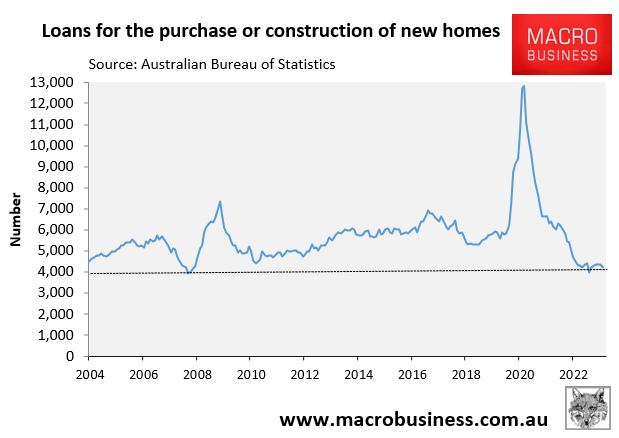
“Lending for new homes was at record lows in 2023, and this downward trend continued into the new year”, said Housing Industry Association chief economist Tim Reardon.
“This leaves the number of loans for new dwellings down by 8.7% in the three months to January 2024 compared to the previous year”.
“This is consistent with other leading indicators of home building activity, such as new home sales and building approvals which continue to show a slowdown in 2024″.
“The RBA’s rate hiking cycle caused consumer confidence to decline and home buying activity to consequently fall”, added Reardon.
Indeed, other forward-looking indicators such as dwelling approvals have collapsed to their lowest level in more than a decade, which also signals further falls in actual housing construction in the period ahead.
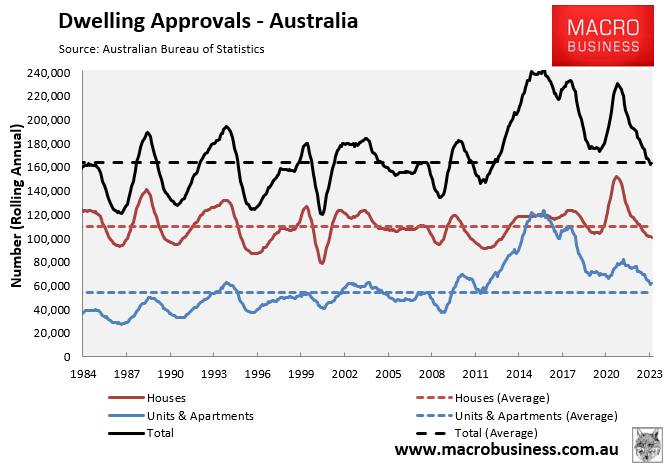
There are three principal reasons why Australia’s dwelling construction is collapsing:
- We have high interest rates.
- Materials costs have surged since the pandemic, meaning builders can’t turn a profit and are going broke at an alarming rate.
- We have labour shortages because home building is competing for workers against infrastructure projects.
Recent data from ASIC and the RBA showed that Australia’s housing construction sector has experienced a sharp rise in insolvencies over the past two years:
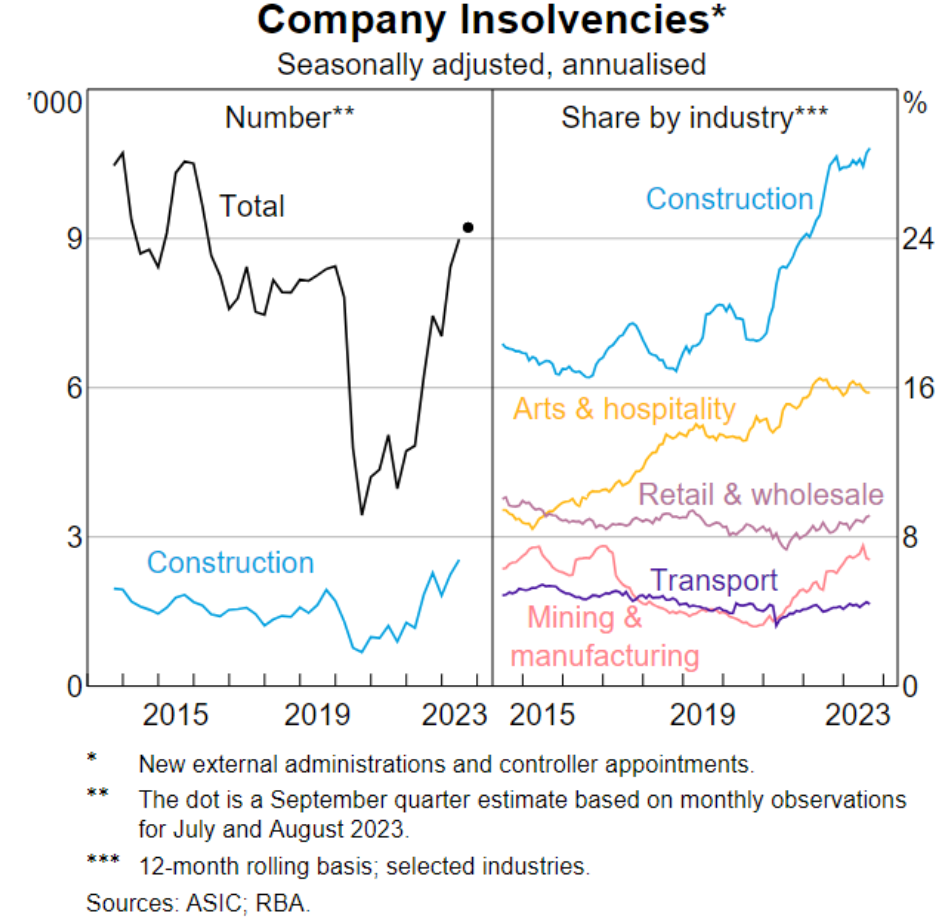
The worst part of all this is that the collapse in dwelling construction has occurred alongside the record increase in Australia’s population, which saw 680,000 people land in the country in 2023, mostly via net overseas migration:
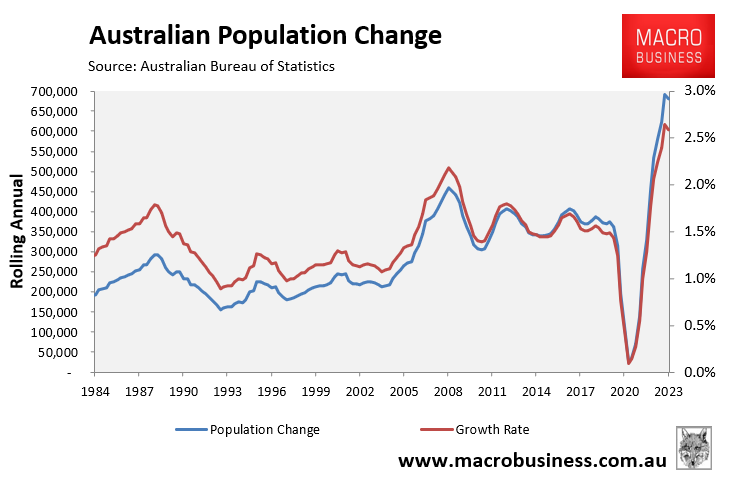
This gulf between housing demand and supply has obviously driven rental vacancy rates to all-time lows and sent asking rents to the moon:
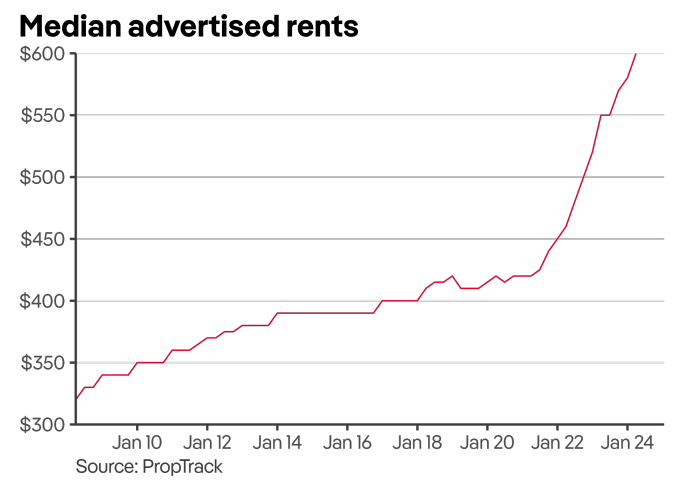
The question every Australian should be asking the Albanese government is: why has it deliberately imported record numbers of people into Australia when the supply-side of the housing market is constrained?
Why did it choose to ramp up immigration to record levels without a plan to house them and provide infrastructure?
This rental crisis is the direct result of the Albanese government’s reckless immigration policy.
Because of Labor’s incompetence, Australian tenants are being forced to pay high rents, are being forced to live in group housing, or are being forced into homelessness.

